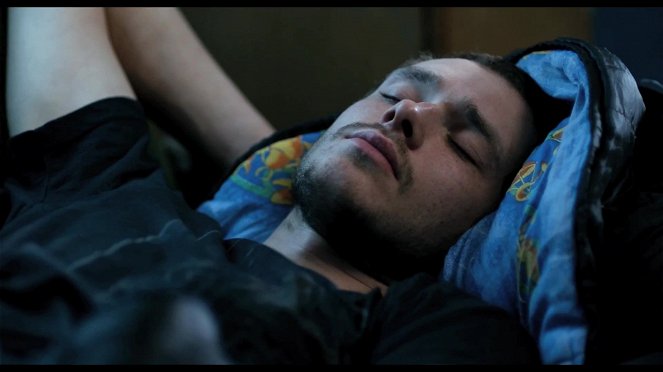Reżyseria:
Aleksey PopogrebskiyScenariusz:
Aleksey PopogrebskiyZdjęcia:
Павел КостомаровMuzyka:
Dmitry KatkhanovVOD (1)
Opisy(1)
Na niezamieszkałej wyspie w arktycznej części Rosji, dwaj mężczyźni pilnie wykonują swoje obowiązki pracowników małej stacji meteorologicznej. Ich zadaniem jest regularne odczytywanie danych i przesyłanie ich przez radio do centrali. W skażonej radioaktywnie okolicy, radio jest ich jedynym łącznikiem ze światem. Dla Siergieja, opryskliwego, pięćdziesięcioletniego mężczyzny, ta praca nie jest niczym nadzwyczajnym. Lata spędzone na odludziu nauczyły go traktować swoje obowiązki poważnie. Paweł jest tu nowy. Został przysłany tuż po skończonych studiach, ma tu spędzić letnie miesiące. Mężczyźni są do siebie zupełnie niepodobni: Paweł jest entuzjastą i woli spędzać czas grając w gry wideo i słuchając muzyki na mp3, niż rozmawiając z sztywnym, niemal groźnym Siergiejem. Sytuacja zmienia się, gdy pewnego dnia Siergiej zabiera wędkę i wyrusza łowić pstrąga do pobliskiej laguny. (Art-House)
(więcej)Recenzje (3)
A very well made course on how to behave like an idiot on an Arctic island. (7.3. Cinema Mundi 2011)
()
The deserted Arctic island is the scene of a small psychological war between two meteorologists, at the beginning of which there is a fairly banal fear of reacting to the tragic news from the mainland. Pavel Kostomarov's poetic camera frames the rift with shots of indifferent Nordic nature, which intensify the misunderstanding and passing of both actors. The lyrical component contrasts with explosive twists in the behavior of characters unable to communicate in an escalated life situation. Popogrebskij's film was definitely one of the best experiences of this year's festival with its picturesqueness, morbidity and psychological sophistication. [IFF KV 2010]
()
The story is set in such a remote environment that even the phrase "where foxes say goodnight" doesn't make sense. A small weather station lost among the ice and steep rocks represents the last vestige of civilization, and staying there is a challenge for the human psyche, even in the short polar summer period. Cooperation is essential in such inhospitable surroundings, but the two scientists who have been brought to this lost outpost differ in almost everything - age, character, and life goals. For Pasha, an internship in the far north is just a step in further career advancement, while the introverted Sergey deliberately chose the life of a polar explorer. One day, younger Pasha receives a message on the radio that he doesn't know how to handle and his nervousness marks the beginning of a series of misunderstandings and conflicts that quickly escalate into absurdity. Director Popogrebski studied psychology and knows how easy it is to succumb to emotions and how destructive a conflict between two such different characters can be. Nevertheless, I found his script lacking in psychological persuasiveness in several key moments. Even the final scene, where Sergey refuses to travel with the rescuers and do what simply must be done, seems hardly understandable to me. However, Popogrebski's film is primarily brought down by a traditional Russian flaw - the reluctance to edit. The events depicted are just enough for a 90-minute runtime, and even in this reasonable length, there would still be enough room for long shots of the harsh nature, maintaining the film's intimate character. It's like diluting a soup for three people with the intention of needing an extra portion. Everyone gets served, but you won't truly enjoy it. Overall impression: 65%.
()

